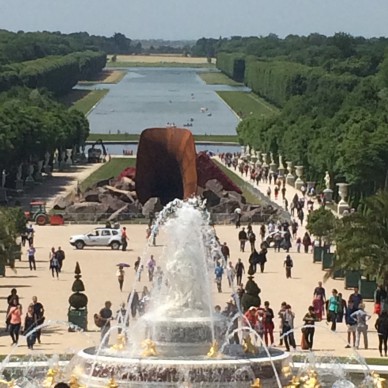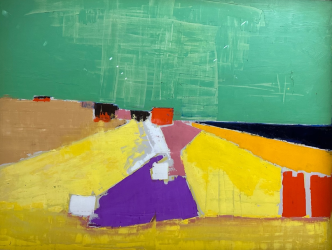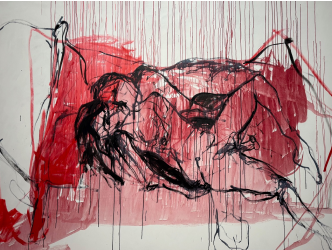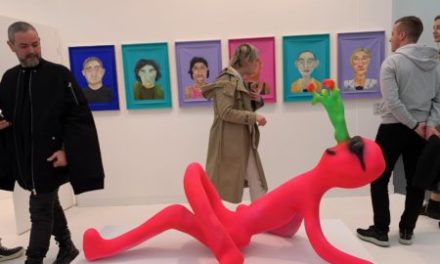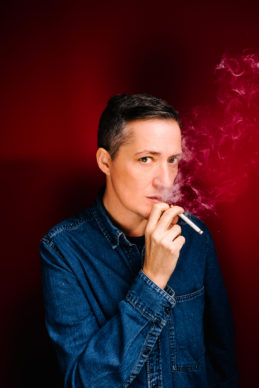
(c) Marie Rouge
Transitioning
Paul B Preciado was born in 1970 in Spain under the name Beatriz Preciado. Today he is one of the most influential philosophers in avant-garde circles. His writing is particularly distinctive. Without orthodoxy, he describes his process of transitioning from a woman’s body to a man’s, and sees it as a reflection of the transitions of our society.

An appartement on Uranus
In “Un appartement sur Uranus” (“An Apartment on Uranus”) (1) he writes: “In these chronicles you will not find, readers, either teaching or moral lessons. There is no dogma that passes the test of the crossing.” And also: “I am not the one transitioning. We are all undergoing a planetary transition.” And above all: “I have become a gender migrant.”

Influential philosopher
Paul B Preciado is also a highly influential philosopher in the art world. The aim was to understand why. During lockdown he wrote several texts for the American magazine Artforum that made a strong impact. He is collaborating on projects including an opera with French artist Dominique Gonzalez-Foerster.
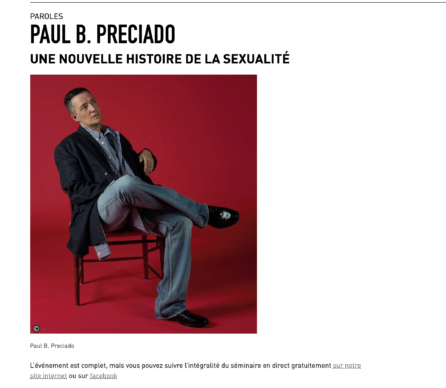
And from 15 to 19 October 2020 he is organizing a seminar at the Centre Pompidou that he has called “A new history of sexuality”.
Documenta 14
Before that he was one of the curators of Documenta 14 in Kassel and Athens. He co-curated the Taiwanese pavilion at the Venice Biennale in 2019 with Shu Lea Cheang.
Carol Rama
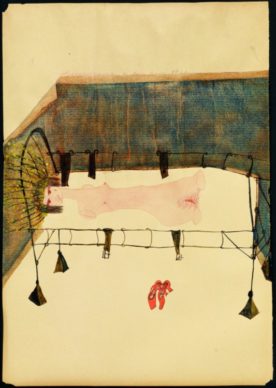
Carol Rama
He was also co-curator of a travelling exhibition dedicated to one of the major rediscoveries of the 2010s, the Turin-born Carol Rama (1918-2015).
Derrida
In a more distant past he was a student of Jacques Derrida at the New School for Social Research, before studying at Princeton University and writing a thesis analysing the function of architecture in the aesthetics of Playboy Magazine. I interviewed Paul B Preciado, who lives in Paris, over Skype, but he refused to allow the video interview to be broadcast and requested to reread the quotes which he has slightly modified, except for a paragraph on the subject of money, which he has removed.
His friend, the French writer Virginie Despentes, writes in the introduction to his book: “You deploy worlds that appear from the margins”. This is an explanation of the margins
“I studied in the United States from 1992 at the New School in New York and then at Princeton. I quickly found myself at the crossroads between academic discourse and the battles over AIDS linked to gay, lesbian and trans activist discourse and that of sex workers and all the artists involved. This was the period when queer theory exploded. We were kids. When I returned to Europe I became aware of the discrepancy between representations of sexuality and sexual emancipation. In France there had been Simone de Beauvoir and Michel Foucault and it had stopped there. But after that there was an epistemological rupture. In terms of my training, in the United States I worked with the French philosopher Jacques Derrida. He gave me an incredible freedom in his relationship with writing and art. I saw him working in parallel on a text about Anne Rice’s vampires and another on Saint Augustine. France has an extraordinary philosophical output, but it is often depoliticized.
Paul B Preciado writes: “Dreams are a form of life”.
If you are not the norm then dreams are your country. In every brain there exists a space for political resistance, including where we don’t imagine there to be one. I am even convinced that this space exists in the brain of Donald Trump. Real life doesn’t correspond with our effective life. My passport indicates a masculine identity but that does not correspond exactly with what I am. My existence in my dreams is more important than my physical existence. In every era there are movements that will be on the side of dreams and will make this the place for the emergence of artistic inspiration. The big question for me today is “what have we done with the dream?”.
A period of great aesthetic transitions
We are at a key moment, similar to that of the inventions, between the 15th and 17th centuries, when America was colonized and thinking was secularized. We are in the process of undergoing a new transition associated with a new aesthetic. Trans practices are a dissident aesthetic invention. It’s not about clothes. It’s about the invention of the production of a dissident body that doesn’t fit the norm. I feel part of the genealogy of Oscar Wilde, Andy Warhol, Suzanne Lacy, Robert Mapplethorpe and Zoe Leonard too. Here the invention of an aesthetic form is the invention of a way of life. In this sense I can say that I am also an artist, even if its differences do not interest me. Aesthetics is a very serious thing. The body of the 19th-century Victorian woman is completely different to the body of the emancipated woman from the 1970s.
His Carol Rama exhibition
I don’t do many exhibitions. I define myself as a philosopher who occasionally curates exhibitions. I create exhibition-manifestos that are a rupture in the logic of the gaze. I 2010 I was doing a study of architecture in the 1970s and I went to Turin. Carol Rama was already very ill. I was absolutely enthralled by the power and beauty of her work and terrified by the idea that she was dying in poverty and had never had a real exhibition, even though she had received an honorary Golden Lion at the Venice Biennale. At the time I was research director at the Macba in Barcelona. We staged the Carol Rama retrospective in Barcelona, in Finland, in Turin and in Paris with Anne Dressen.
Curating the Taiwan pavilion at the Venice Biennale
Shu Lea Cheang is a Taiwanese-American artist who lives in France. The Taiwanese pavilion was located in the former prison in Venice. We discovered that Casanova was the most famous of the prisoners incarcerated there. Casanova is a point of reference for me. He was one of the first who promoted the use of condoms. He was a great liberator of sexuality who opposed the church. I am appropriating Casanova today for a queer and trans-feminist tradition. More generally in the exhibition we made reference to people who had been imprisoned as a result of their sexual practices. There were a dozen cases, from Casanova to HIV-positive young men in Taiwan. Shu Lea Cheang’s work, which looks at the subject of new technologies and sexuality, allows us to understand contemporary transformations. Pornography is the invisible infrastructure of the internet. There would be no internet if there wasn’t pornography. We have moved from the physical prison to the digital prison and it directly influences contemporary sexuality. Apps should be considered to be the new organs of sexuality.
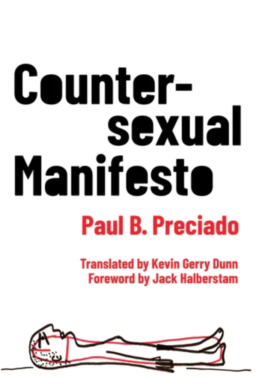
(1) Grasset 2019.
Paul B. Preciado. Une nouvelle histoire de la sexualité (A new history of sexuality). From 15 to 19 October 2020. Centre Pompidou.
https://www.centrepompidou.fr/cpv/live/Preciado
Support independent news on art.
Your contribution : Make a monthly commitment to support JB Reports or a one off contribution as and when you feel like it. Choose the option that suits you best.
Need to cancel a recurring donation? Please go here.
The donation is considered to be a subscription for a fee set by the donor and for a duration also set by the donor.

